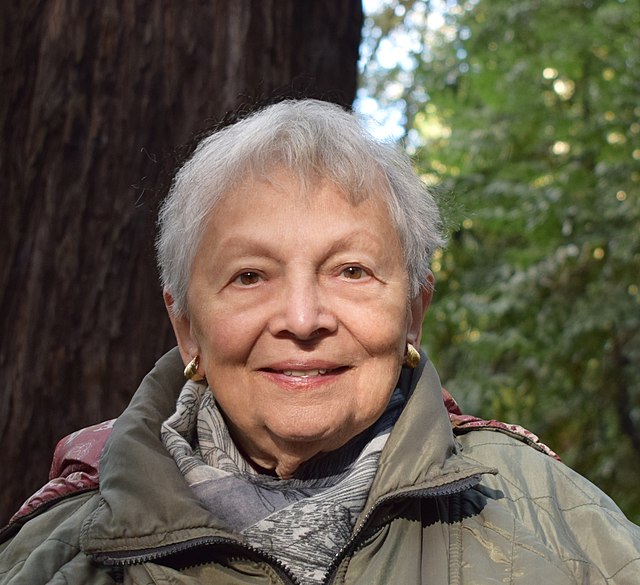Author Cecile Pineda was born in September 1932 and recently passed away on August 11, 2022. Her novels have won numerous awards including the Sue Kaufman Prize for First Fiction and a Gold Medal from the Commonwealth Club of California in 1986 for Face, and a National Endowment for the Arts Creative Writing Fellowship.
Pineda was a daughter of a Mexican professor of languages and a French-Swiss artist and teacher. In her autobiographical essay “Deracinated: the writer re-invents her sources” published in Máscaras, she states that her father, along with his father and brothers, fled the Mexican Revolution leaving his mother and sister behind. In 1961, she moved from New York City to San Francisco, California, where she has spent most of her career as a writer and theater maker.
According to
the Washington Post publication, “Ms. Pineda grew up in New York, the daughter of a Swiss mother and a Mexican father. Her father, she recounted, had entered the United States in 1910 as an undocumented immigrant, studied at Harvard University and became a philologist and linguist. He cultivated his daughter’s interest in literature and art but revealed little of his life before he came to the United States, Ms. Pineda told the online Hippocampus Magazine, leaving her “an orphan in the sense that I never knew from whom or where I came”.
In 1969, Pineda founded The Theater of Man which she directed from 1969 to 1981. Performance pieces were developed in an intense rehearsal process in which actors worked with composers, designers, choreographers, playwrights, and sculptors under her direction. Productions included her redaction of T. S. Eliot's Murder in the Cathedral, Claude van Itallie’s The Serpent, Eurydice,Stoneground, based on Mujica-Lainz’ Bomarzo, The Trial, after Franz Kafka, and Threesomes.
She completed her theater studies in 1970, taking an advanced M.A. degree in theater from San Francisco State University. The Cecile Pineda Papers, 1959–to the present, include a collection of the author's original correspondence, manuscripts, journals, reviews, videos, drafts, rehearsal logs, and posters documenting her career in both literature and theater. The collection is housed at Stanford University, occupying more than 29 feet (9 m). Her academic appointments include positions as writer in residence at San Diego State University and Mills College in Oakland, California, and a Distinguished Regents’ Lectureship at the University of California, Berkeley.
An avid reader from childhood, Pineda cites Samuel Beckett, Kobo Abe, J.M. Coetzee, Gabriel Garcia Marquez, and Franz Kafka as writers whose work has most influenced her.
“I do not think anymore that writing—mine or another’s—can change the world”, Pineda told The Bloomsbury Review in an interview in 2004. “Perhaps in their small way, writers can answer for those who are voiceless in their extreme deprivation and suffering. But at best, in the very smallest scheme, writing can provide a moment of grace, both for her who writes and him who reads, in a very dark world”.
Cecile Pineda’s debut novel, Face, which won the Sue Kaufman Prize for First Fiction awarded by the American Academy and Institute of Arts and Letters, proposes a Brazilian protagonist who suffers a catastrophic facial accident. It addresses issues having to do with identity. “When I read Face in 1985, it struck me as an extraordinary achievement, all the more extraordinary for being a first novel. Rereading it has not changed my estimate. Face continues to haunt me”. — J.M. Coetzee, Nobel Prize, 2003.
 commons.wikimedia.org
commons.wikimedia.org











